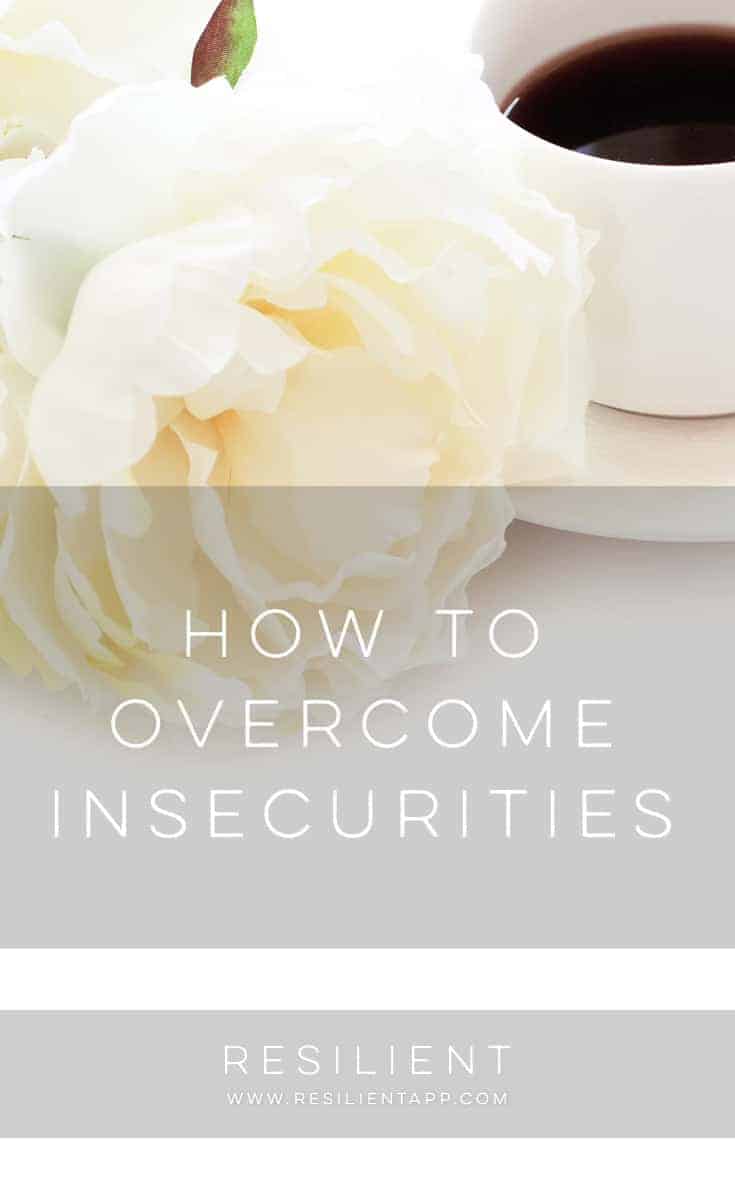How to Overcome Insecurities
This post was written by Leo Babauta, originally for Zen Habits. Republished here with permission.
There isn’t a person amongst us who doesn’t have insecurities — some are just better at dealing with them, or perhaps hiding them. Here’s how to overcome insecurities.

Subscribe to our Youtube channel!
How to Overcome Insecurities
We worry what other people think about us, we worry if we’re good-looking enough, we worry that we’re not doing all that we should be, we worry that we’ll fail, we worry that people will find out we’re a fraud.
We worry that we’re too fat, worry if she’ll like us, worry if he likes that other girl, worry that we’re not good enough.
And social media, with its culture of getting us to want approval with likes and retweets, with its showing off amazing bodies and amazing travels and food … it only exacerbates the problem. But you know all this.
The question is: how do we overcome these insecurities?
How do we become OK with ourselves? How do we learn to find contentment and peace?
The answer isn’t simple, but it requires one thing to start with: a willingness to face what we usually don’t want to face.
That means a bit of courage. Just in small doses, to start with, but it means a willingness to set aside all the distractions for a little bit, and just focus on what you’re struggling with.
Do you have that courage? If so, let’s start.
Products We Recommend:
The Obstacles
What gets in our way to dealing with insecurities? There are obstacles littering the path. There are old wounds that have never healed.
Some of the obstacles that get in the way:
Past criticisms. If a parent or other relatives criticized us while we were growing up, or if we were bullied, we’ve probably internalized that. Those criticisms stay in my head, but have died down in recent years because of work that I’ve done (more on this below). Still, they may never completely go away.
A negative self-image. When people criticize you over the years, you start to criticize yourself. And all this criticism, along with unfavorable comparisons of yourself to others, results in a self-image that isn’t so great. It doesn’t matter if the reality doesn’t meet this self-image … we can be competent, brilliant, and beautiful, but if we have an image of ourselves that is ugly, dumb, and a failure, we will act according to that image.
Needing approval. When someone gives us approval, that’s great! We feel we are worthy, and beautiful. But the problem then becomes that we need more approval to keep this self-image, and we fear not getting the approval because then this great self-image will go away.
We become stuck in a cycle of needing constant approval, and fearing disapproval. We read into everything that everyone says and does, in real life and on social media, in terms of approval or disapproval. This becomes a fearful cycle of need.
More Posts You Might Like:
- The 3 Day Rule That Can Change Your Life
- 25+ Self Improvement Tips
- 30+ Journaling Prompts
- How to Improve Your Life Overnight
- 10+ Personal Growth Books
Lack of trust. We learn not to trust other people to stick with us, to accept us, to see our side of things as understandable. This is trained in us over the years as people do things that we think of as abandonment or rejection. We stop trusting in the moment to turn out all right.
Images in social media & the media. We compare ourselves to the people we see on Instagram or other social media. We compare ourselves with the people in movies, TV, magazines. These images are meant to sell us, but the way they sell us is by making us feel insecure about ourselves, and then needing whatever it is that the celebrities are selling us in order for us to be as good as them.
Not accepting things about ourselves. In the end, the result is that we reject large parts of ourselves. We don’t like that we are overweight, or have pimples, or something about our bodies. It’s amazing, because even people you think have amazing bodies — they reject things about their bodies! We also reject parts of our inner selves, the parts that are undisciplined or uncaring or fearful or lazy. We reject the parts of ourselves that are insecure.
Those are a lot of obstacles to deal with! And that highlights why this takes courage, and why the fix isn’t simple.
But there is a way forward.
The Road to Dealing with Insecurity
Here’s the secret: The obstacles actually show us the path. The obstacles are the path.
We can embrace these obstacles and work with them. In order to do that, we need to start to develop an awareness of when our insecurities are arising. We can use them as a mindfulness bell, ringing when we are troubled by fears and mistrust, telling us, “Hey! There’s some good material to work with here.”
And that’s the key: All of our insecurities are actually an opportunity to do some good work, to learn about how we work, to develop skills that will help us for life.
So start to pay attention, and notice when you’re being driven by insecurity. And then do the following work:
Forgive the past. If your insecurities have been shaped by a relative or authority figure criticizing you, recognize this. Then start to forgive them. Understand that they were driven by their own insecurities, struggling with their own demons. They behave imperfectly, but we all do. They weren’t right in what they did, but you can understand it nonetheless. And forgive them for their bad behavior, because holding on to resentment isn’t helping you. Let the past go, one step at a time.
Accept all of yourself. Pause and take a self-assessment. Notice the parts of yourself, both your body and your inner self, that you don’t like. Take a look at these parts of you, and see if you can send them love. See them for the imperfect parts of you that they are, deserving of love as a friend who is imperfect also deserves love.
Think about how you’d treat this imperfect friend, and be the same way toward yourself. Give yourself assurance, give yourself compassion. Embrace all the parts of you, nobbly bits and all, and see the beauty in them. They are what make you who you are, and they are wonderful.
Practice self-approval. If you notice yourself wanting someone else’s approval, their praise and attention, their likes and retweets … pause, and instead replace that with self-approval. You can take away the power of others to approve of you if you give that power to yourself.
You don’t need anyone else’s approval but your own. That doesn’t mean you don’t want connection with others, or love, but you can love others and be loved by them while also being self-approved. Accept yourself, completely, love yourself. And that’s all you need.
Embrace non-comparison. Comparison of yourself with how others look, what they’re doing, where they’re traveling, how much fun they’re having … it’s never a useful comparison, and it actively harms you. Instead, when you see someone else, instead of comparing yourself with them, see them as apples to your oranges. Be happy that they’re having fun, be joyful for their successes.
They’re on a completely different path from you, and they can be happy and have a great time and you can too, on your own path. Wish everyone well, but see their awesomeness as different from yours.
Develop trust in the moment. Through all these practices, start to develop a trust in yourself that you’ll be OK. Develop a trust in the moment that it will unfold and all will be well. This develops over time, by making small predictions about the moment (“This moment will turn out OK”) and then seeing if the prediction comes true.
This is the path. You find the things you’re struggling with, and learn to work with them. Learn to shift your perspective. Learn to see what’s tripping you up, and turn it into an opportunity to practice new skills.
This is a good path. It has helped me to be more accepting of myself, and trust myself more.
And in turn, it has helped me to love myself and others more, one moment at a time.
P.S. Get free downloads, checklists, inspirational emails & more when you sign up for our Free Resource Library!

